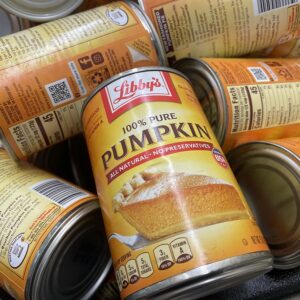In tough times or better days, Americans have always found much for which to be grateful. Lately, this has been no easy task with the return of Jimmy Carter-levels of inflation walloping family paychecks and savings over the past three years. Meanwhile, this year’s Thanksgiving Day meal’s cost remains historically high.
Our nation would be far more thankful if the Fed were not fervently attempting to control inflation through endless interest rate hikes to slow the economy, the equivalent of attempting to get a cat out of a tree by throwing a dog at it. There are far better (and more humane) solutions, but it would require politicians and banking regulators to comprehend the problem.
The two primary causes of high inflation include unanticipated events, such as a drought or global pandemic that create supply shortages, and calculated fiscal policies, such as the 40 percent increase in the U.S. money supply courtesy of Joe Biden’s spending sprees of several trillion dollars that predictably devalued our currency.
In rare instances, there is a third inflationary culprit, protectionist trade policies, where the government sets an artificial market price for common goods or commodities, such as steel. Presidents from FDR to Donald Trump have enacted steel tariffs on foreign imports, typically for political reasons. The results invariably produce more harm than good, succeeding only to raise costs for consumers and businesses, slow economic growth, suppress wages, and slash jobs.
Potential new steel tariffs are back on the table, but not through Washington’s doing. Ohio steel goliath Cleveland-Cliffs petitioned the Commerce Department this year for an increase in imported tin-plate steel tariffs by as much as 294 percent on eight of our trading partners: Canada, the U.K., Germany, South Korea, The Netherlands, Taiwan, Turkey, and China.
Tin-plate is used throughout our economy in everything from auto parts to cookware to jewelry. Primarily, it supplies the material for cans used to package countless food and drink products in the family pantry. If Cleveland-Cliffs were to prevail in its petition, 130 million American households would see a noticeable spike in their grocery bills and the price of hundreds of everyday products.
A study by The Juday Group found the Cleveland-Cliffs’ can tax could raise the price of each canned item by up to 58 cents, an extraordinarily punitive increase for lower-income Americans who rely on canned food’s affordability. It would further devastate our nation’s food banks, which feed over 50 million Americans annually and heavily depend upon canned food donations.
Domestic steel makers are able to produce roughly half of the tin plate needed by U.S. manufacturers; a big price jump in the supply of imported steel will necessarily lead to reductions in production and substantially increase the chance for more supply-chain shortages. In manufacturing and farming, our economy would be hit by higher prices and job losses. Roughly 40,000 jobs are at risk from increased tin-plate tariffs, according to a study by Trade Partnership Worldwide, while a mere 66 steelworker jobs stand to benefit.
In an August preliminary ruling, the Commerce Department voiced skepticism toward Cleveland-Cliffs’ claims of unfair trade practices by their foreign competitors, suggesting five countries should receive no tariff increase. This is welcome news. However, the final ruling will come early next year, giving the steelmaker ample time to ramp up its lobbying efforts.
Cleveland-Cliffs’ attempt to rig the market solely for its own gain while everyone else pays the price is a corruption not just of our finances but our values. As inflation creeps upward and people are robbed of their spending power, they wonder why they should play by the rules when the wealthy and well-connected do not.
The Carter years saw the invention of the “misery index,” driving home the point that the costs of inflation cannot be measured in dollar amounts alone. As we pay the literal price of Washington’s bad policies, we can hope that they at least get one decision right and reject Cleveland-Cliff’s costly protectionist ploy, an outcome for which we will all be thankful.

